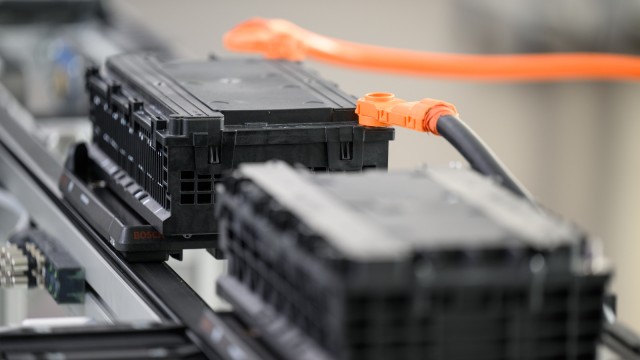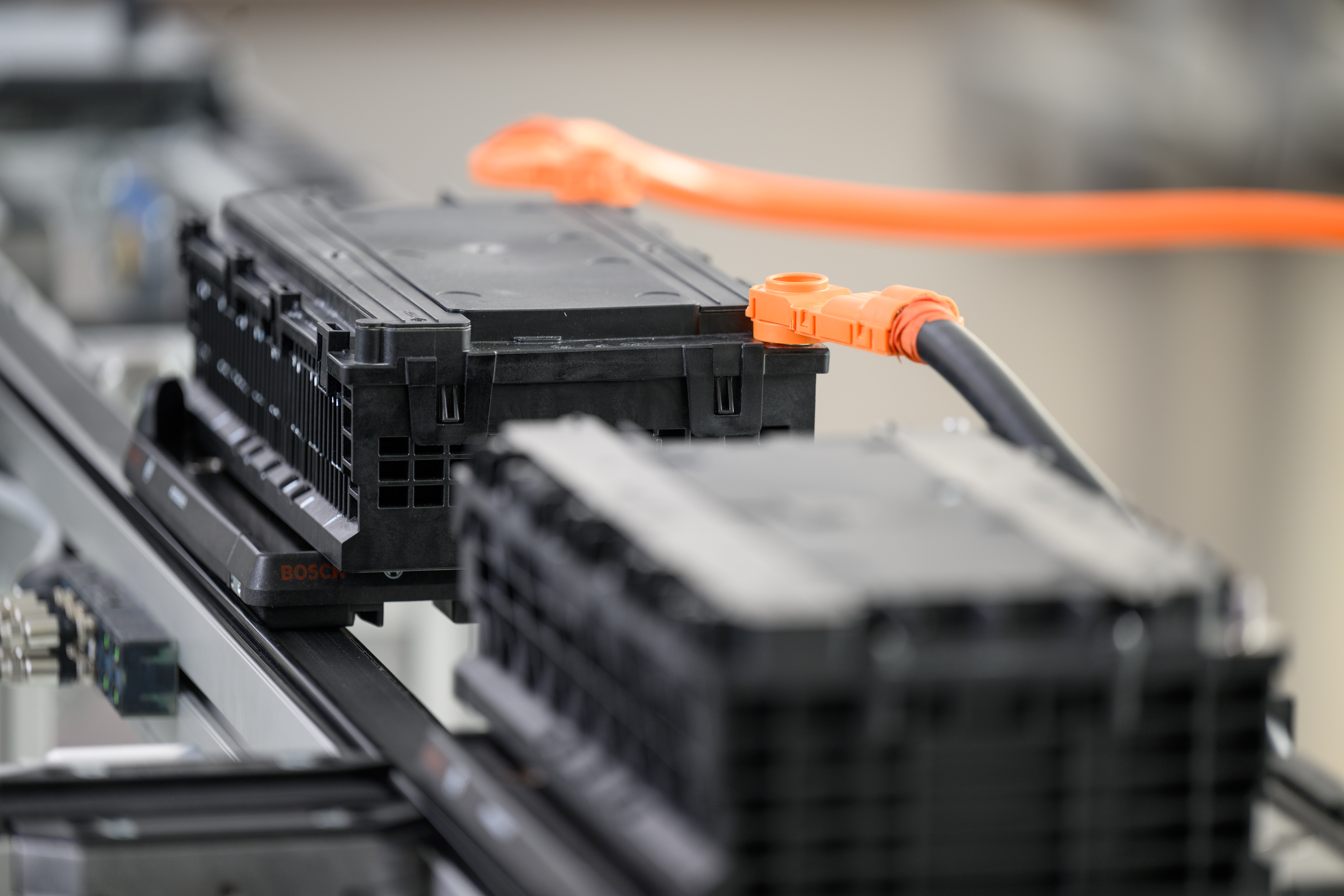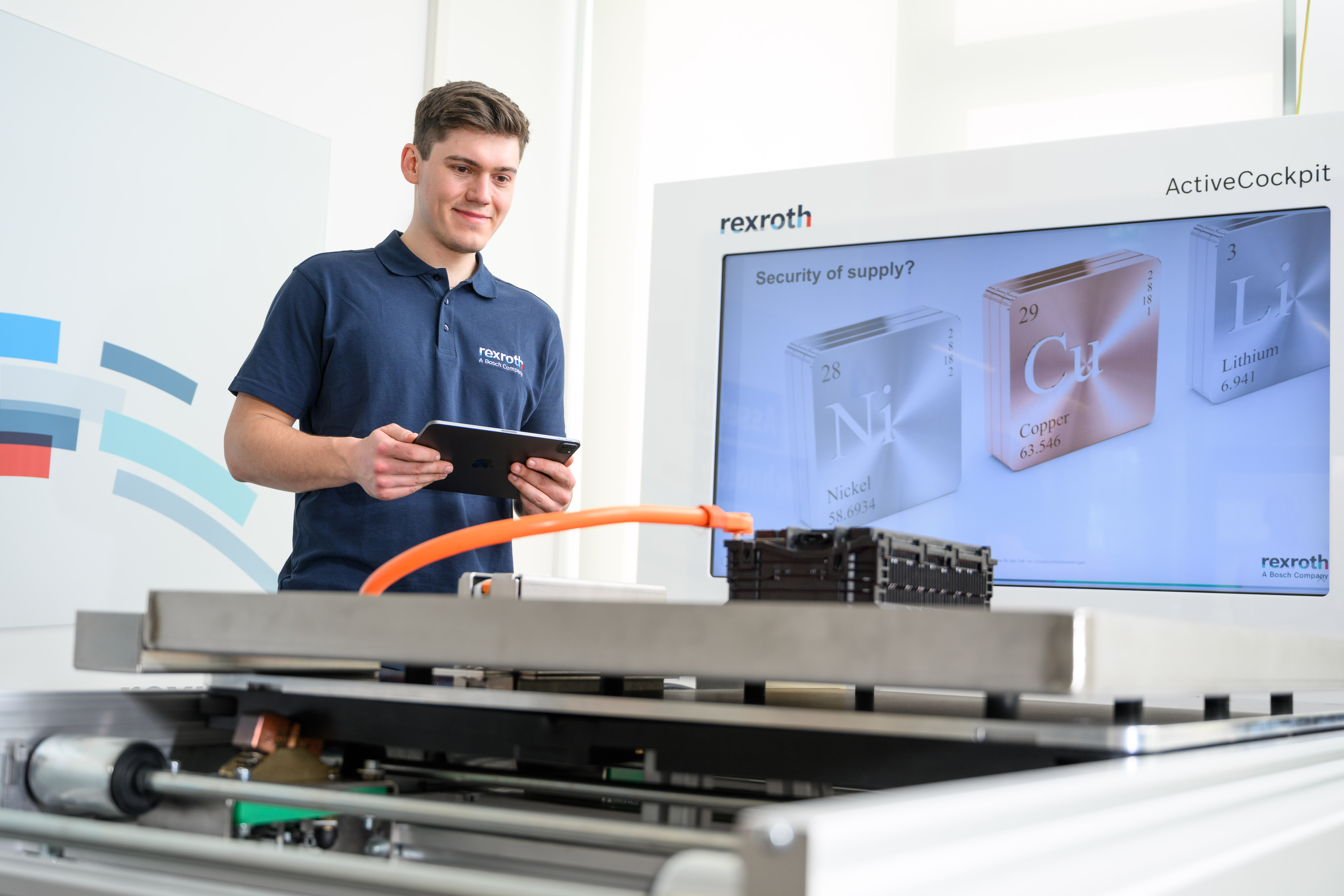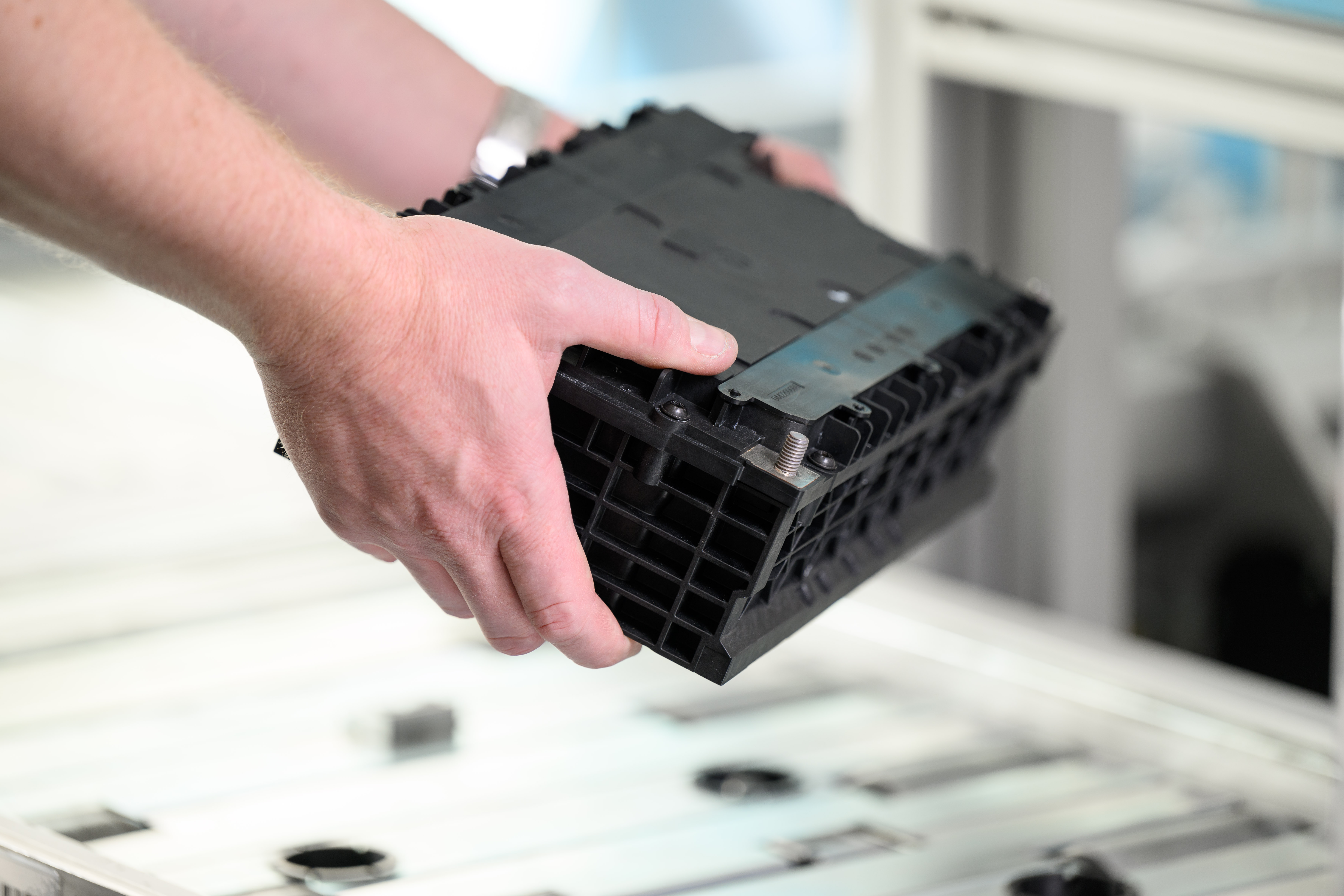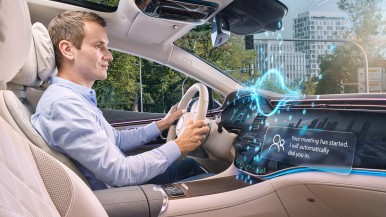Stuttgart, Germany – More and more electric cars are finding their way onto the road. Bosch estimates that they will account for around 70 percent of all newly registered passenger cars in Europe by 2030. This is increasing demand for batteries and for the recycling of the raw materials they contain, such as lithium, cobalt, and nickel. Bosch has developed special machinery, equipment, and software for this purpose. The subsidiary Bosch Rexroth is supplying Battery Lifecycle Company, a joint venture between REMONDIS subsidiary TSR Recycling and Rhenus Automotive, with Europe’s first fully automated system for discharging and disassembling battery modules. “Electromobility can only establish itself in the long term if sufficient raw materials are available for battery production. Recycling plays a key role here, and helps place our output on a sustainable footing: we reuse what we use, and we recover raw materials,” says Dr. Stefan Hartung, chairman of the Bosch board of management. Experts predict that by 2030, Europe will require recycling capacity for up to 420,000 metric tons of battery material each year (Source: Fraunhofer ISI, 2023). “If we want to build a European circular economy, we need to integrate recycling firmly into the product life cycle and create the necessary infrastructure to do so.
Bosch is contributing its technical expertise to this,” Hartung says. Bosch will present industrial technology for battery recycling at Hannover Messe (April 17–21, 2023).
